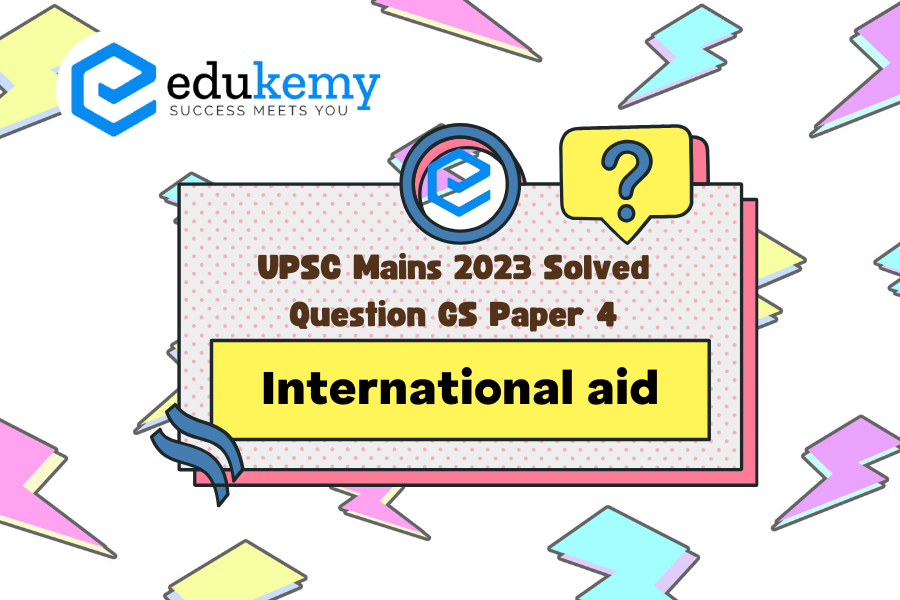International aid, a cornerstone of global solidarity, serves as a vital mechanism for assisting resource-challenged nations in their development endeavors. However, amidst the noble intentions lie complex ethical considerations that demand scrutiny in contemporary international aid practices. While aid aims to alleviate poverty, promote sustainable development, and address humanitarian crises, ethical dilemmas often arise regarding the distribution of resources, power dynamics, and long-term impacts. One pertinent ethical concern revolves around the paternalistic nature of aid, wherein donor nations or organizations may impose their ideologies or agendas on recipient countries, potentially undermining their autonomy and perpetuating dependency. For instance, the controversy surrounding conditional aid, where donors attach strings to their assistance, exemplifies this dilemma. Additionally, issues such as corruption, mismanagement, and the unintended consequences of aid interventions further underscore the need for ethical reflection in international assistance efforts. Therefore, fostering a nuanced understanding of ethics in international aid is imperative to ensure that assistance is provided in a manner that respects the dignity, agency, and self-determination of recipient nations.
Contents
Answer
International aid refers to the transfer of capital, goods or services from a country or international agency for the benefit of the recipient state. While it aims to promote development, alleviate poverty and address humanitarian crises, ethical concerns arise in its implementation.
Key ethical considerations in contemporary international aid
- Transparency and accountability in the distribution and utilisation of the aid as lack of it results into corruption, wastage and stifling of development process
- e.g. – WB report highlighting resource misappropriation by African dictators. Economic survey 2016-17 pointed out aid curse.
- Preference to humanitarian and altruistic motives
- e.g. – Indian aid to Tsunami affected nations (2004), to Nepal post-earthquake in 2015, to Turkey in 2023 (operation Dost).
- Sustainability and local capacity building
- India has supported Bhutan in building its capacity in various sectors, including education, healthcare, and infrastructure development through ITEC initiative etc.
- Adherence to cultural sensitivities – Humanitarian aid must respect local customs.
- e.g. Ignoring them, as seen in Liberia during the Ebola crisis, resulted in widespread mistrust
- Resource dependency – this is in contrast to altruism, it aims to entrench dependency and then seek concessions.
- e.g. – China’s predatory lending through CPEC in Pakistan, Hambantota in Sri Lanka etc.
- Imposition of conditionalities –
- IMF has been criticised for being ideologically motivated and promoting the “Washington consensus” under the guise of the aid.
- U.S. aid to Central American countries has been accused of prioritising political interests over the welfare of the recipients.
- Environmental degradation has become an issue due to negative spillovers.
- e.g. International aid projects in the Amazon region of South America, such as road construction, have often caused deforestation and environmental damage by enabling illegal activities like logging and mining.
Therefore, ethical international aid should be recipient-centred, sustainable, respectful, and accountable. By adhering to these principles, aid efforts can better address poverty, inequality, and promote lasting human development. Finally, International aid should be based on the spirit of “Vasudhaiva Kutumbakam – One Earth, One Family, One Future”.
In case you still have your doubts, contact us on 9811333901.
For UPSC Prelims Resources, Click here
For Daily Updates and Study Material:
Join our Telegram Channel – Edukemy for IAS
- 1. Learn through Videos – here
- 2. Be Exam Ready by Practicing Daily MCQs – here
- 3. Daily Newsletter – Get all your Current Affairs Covered – here
- 4. Mains Answer Writing Practice – here


